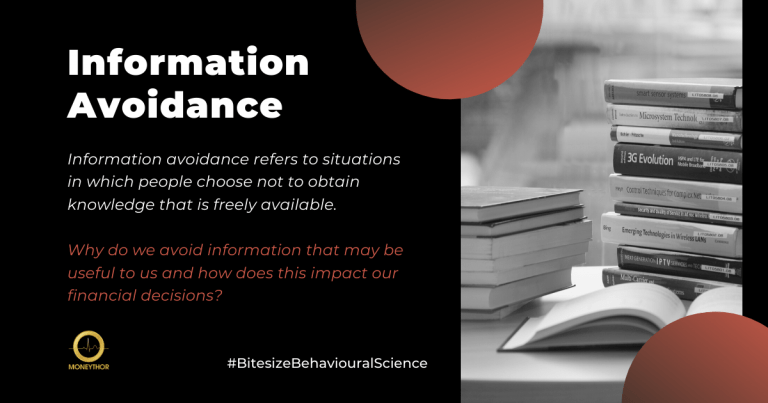Information Avoidance

DOWNLOAD LINK : Link 1
Information Avoidance - American Economic Association
Information Avoidance Russell Golman David Hagmann George Loewenstein Journal of Economic Literature vol. 55, no. 1, March 2017 (pp. 96-135) Download Full Text PDF (Complimentary) Article Information Abstract We commonly think of information as a means to an end.. source: https://www.aeaweb.org/articles?id=10.1257/jel.20151245
(PDF) Information Avoidance: Who, What, When, and Why - ResearchGate
We define information avoidance as any behavior designed to prevent or delay the acquisition of available but potentially unwanted information. We review the various literatures that examine.... source: https://www.researchgate.net/publication/232602336_Information_Avoidance_Who_What_When_and_Why
Information Avoidance in the Information Age | Psychology Today
According to Golman et al., information avoidance is often driven by hedonic factors, such as reducing anxiety, aversion to regret or the need to stay optimistic. But it can also be strategic.. source: https://www.psychologytoday.com/us/blog/consumed/201702/information-avoidance-in-the-information-age
Information avoidance: Who, what, when, and why. - APA PsycNet
We define information avoidance as any behavior designed to prevent or delay the acquisition of available but potentially unwanted information. We review the various literatures that examine information avoidance and provide a unique framework to integrate the contributions of these disparate areas of research.. source: https://psycnet.apa.org/record/2018-70057-006
Information Avoidance - The Decision Lab
This act of circumvention is called information avoidance, defined as intentionally avoiding or delaying information that is freely accessible but potentially undesirable. 1 While it can sometimes be carried out for strategic reasons, it is usually done as a means to prevent the negative psychological consequences of knowing the information.. source: https://thedecisionlab.com/reference-guide/psychology/information-avoidance
Information Avoidance - American Economic Association
We specify two necessary criteria for avoidance to be classified as "active": (1) the individual is aware that the information is available, and (2) the individual has free access to the information or would avoid the information even if access were free.. source: https://pubs.aeaweb.org/doi/pdfplus/10.1257/jel.20151245
Information Avoidance: Who, What, When, and Why
We define information avoidance as any behavior designed to prevent or delay the acquisition of available but potentially unwanted information. We review the various literatures that examine information avoidance and provide a unique framework to integrate the contributions of these disparate areas of research.. source: https://journals.sagepub.com/doi/10.1037/a0021288
From information seeking to information avoidance: Understanding the ...
Volume 58, Issue 2, March 2021, 102440 From information seeking to information avoidance: Understanding the health information behavior during a global health crisis Saira Hanif Soroya a , Ali Farooq b , Khalid Mahmood a , Jouni Isoaho b , Shan-e Zara Add to Mendeley Get rights and content. source: https://www.sciencedirect.com/science/article/pii/S030645732030933X
Information Avoidance: Past Perspectives and Future Directions
In the present age of unprecedented access to information, it is important to understand how and why people avoid information. Multiple definitions of "information avoidance" exist, and key aspects of these definitions deserve attention, such as distinguishing information avoidance from (lack of) information seeking, considering the intentionality and temporal nature of information .... source: https://journals.sagepub.com/doi/full/10.1177/17456916231197668
Information Avoidance: Past Perspectives and Future Directions
Multiple definitions of "information avoidance" exist, and key aspects of these definitions deserve attention, such as distinguishing information avoidance from (lack of) information seeking, considering the intentionality and temporal nature of information avoidance, and considering the personal relevance of the information.. source: https://pubmed.ncbi.nlm.nih.gov/37819241/
DOWNLOAD LINK : Link 1